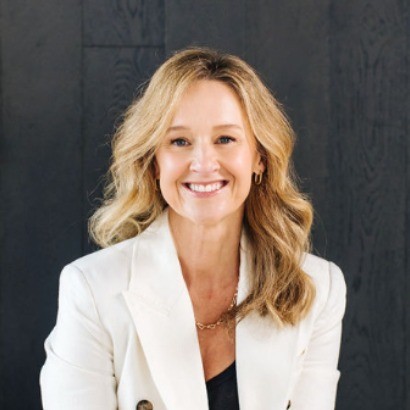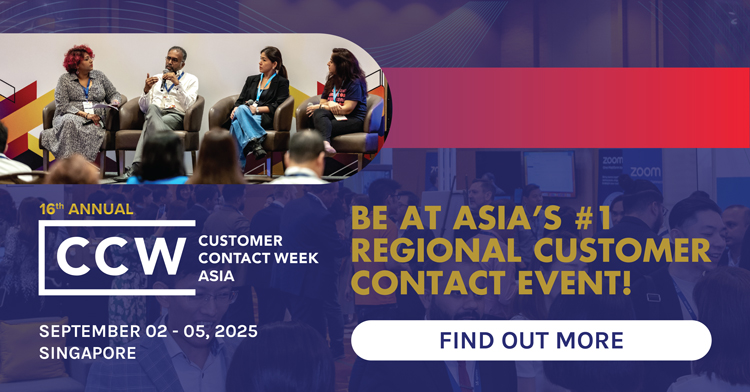The Australian Customer Experience (CX) job market is currently experiencing solid growth, with strong demand in the financial services, retail, and healthcare sectors. While competition for senior roles is high, there’s a notable need for professionals who can combine strategic thinking with hands-on technical skills and data analysis. CXFocus editor, Mark Atterby talks to Fiona Gilfillan. Managing Partner for CX recruitment specialists SCC TALENT about the latest trends in the CX job market.

Mark Atterby (MA): What is the current demand for Customer Experience (CX) professionals in Australia? Are there specific industries (e.g., retail, banking, healthcare) where the demand is particularly high?
Fiona Gilfillan (FG): There’s definitely solid demand for CX skills, though the shape of that demand has shifted a little over the last 12 months.
We’re seeing the strongest appetite in sectors where customer loyalty and retention are critical: financial services, retail (particularly fashion and lifestyle), and healthcare stand out. These industries are investing in CX roles that help them really understand and map customer journeys, improve service delivery, and strengthen retention in markets where acquisition costs are high.
That said, employers are being selective and the competition for senior level roles is fierce. I’d say the “sweet spot”, where we are seeing the most demand, is for candidates who combine strategic thinking with hands-on data capability and technical understanding.

I’d also point out that there’s also a noticeable gap in the market for junior to mid level candidates.
(MA): What are the most significant trends shaping the Australian CX job market right now? (e.g., AI and automation, remote/hybrid work, hyper-personalisation, data-driven CX).
(FG): Ai is the biggest trend changing the job market right now – it’s exciting but also unsettling.

AI and automation continue to move into almost every aspect of CX, from data analytics through to customer service automation. It also enables customer communication to become more seamless, intelligent and relevant. Looking ahead many of our clients are considering the impact of agentic AI and how this will impact their customer experiences.
We are living through a fascinating time as the workforce evolves and adapts to great change. There will no doubt be jobs impacted in the process so it’s imperative that CX professionals adapt and keep very close to industry and technology change.
We’ve also seen an evolution of the term “CX” over the last few years and a fragmentation of the different career pathways that sit under CX banner. These include, service design, CRM, UX, marketing automation, digital experience, employee experience, customer service. This can be a frustration in the recruitment market, as job seekers really need to interrogate job descriptions to ensure that their skills align.
(MA): How are salaries and compensation packages for CX roles evolving in Australia? Are there regional differences or a notable pay gap for certain roles?
(FG): After a period of rapid salary inflation during the post-COVID talent shortage, packages have largely stabilised, with businesses becoming more cautious particularly when making senior hires. There’s less opportunity for package negotiation through the recruitment process. We have also seen a trend towards fractional or consultant CX specialists in the market, pointing to a desire for business to bring in specialist knowledge for specific projects rather than a commitment to full time hires.
There are some regional differences in salary for CX candidates (but not a dramatic). Sydney continues to offer the highest salaries for CX leadership roles, reflecting the concentration of corporate head offices and international brands as well as cost of living factors. Melbourne follows closely behind.
(MA): What are the most in-demand skills for CX professionals in Australia today? How has this changed in recent years? (e.g., data analysis, AI integration, strategic planning, journey orchestration).
(FG): It’s an interesting time in the market where the advances in tech have provided a level of democratisation around CX – evens smaller businesses can offer personalised communication and experiences using tech platforms that are quite intuitive.
We are seeing continued demand around strategic planning, customer journey mapping, and data capability. Overlaying this are soft skills around empathy and the ability to see things from the customer’s perspective, combined with an ability to influence in affect change within organisations.
(MA): What are the main challenges for companies when it comes to recruiting and retaining top CX talent in Australia? What strategies are proving effective?
(FG): One of the most common questions our CX candidates ask is “How committed to CX is the leadership of the business?”. There’s nothing more frustrating to CX candidates when they can see a solution for improved customer outcomes but can’t implement. Candidates are drawn to roles where there is a clear top-down commitment to CX and they have the internal systems and autonomy to make change.
The organisations doing this well are those that invest in their people and their CX function as a whole. Clear career pathways, ongoing development, and the chance to work on transformative projects make a big difference. Flexibility and hybrid arrangements remain important too, particularly for senior talent who expect trust and autonomy in how they deliver outcomes.
From a recruitment perspective, moving quickly and communicating clearly also goes a long way. The best candidates don’t stay on the market long! We’ve also seen companies benefit from broadening their view hiring candidates from adjacent industries such as retail, digital, or loyalty, who can bring transferable skills and fresh perspectives into CX roles.

